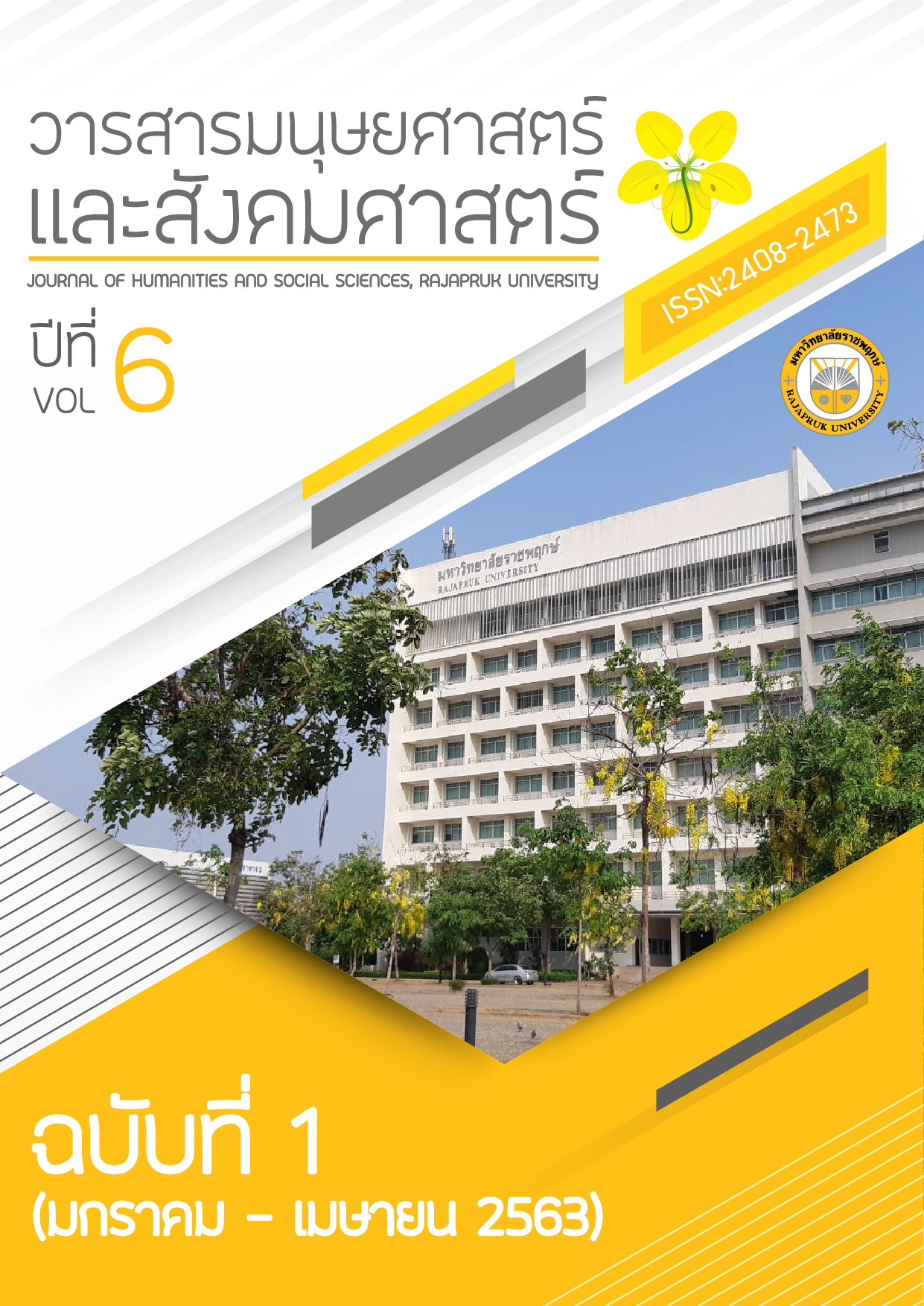The Psychometric Property of Thai Satisfaction with Life Scale of High School Students: Test of Gender Invariance
Main Article Content
Abstract
This research aimed to: 1) investigate the psychometric property of Thai satisfaction with life scale of high school students, and 2) test gender invariance of the scale. The measurement was tested on 400 high school students in Bangkok with 2-stage random sampling. Data were collected using self-report questionnaire including personal data and Thai satisfaction with life scale. The Scale was analyzed using frequency, percentage, mean, standard deviation and multi-group confirmatory factor analysis.
The results yielded that 1) The analysis of the scale’s reliability showed good internal consistency (α = 0.74) and confirmatory factor analysis indicated that the measurement yielded construct validity (c2= 1.01, df = 1, p-value = 0.60, AGFI = 0.99, CFI = 1.00, RMSEA<0.01) and 2) the Thai satisfaction with life scale featured partial strict gender invariance.
Article Details
References
เบญญา คงธนอิทธิ สมพร สุทัศนีย์ และ เสรี ชัดแช้ม. (2554). โมเดลความสัมพันธ์เชิงสาเหตุความผาสุกแห่งตนของนักศึกษาระดับปริญญาตรี. วารสารวิทยาการวิจัยและวิทยาการปัญญา. 8(2) ตุลาคม – มีนาคม: 30 - 44.
Bajaj, B., & Pande, N. (2016). Mediating role of resilience in the impact of mindfulness on life satisfaction and affect as indices of subjective well-being. Personality and Individual Differences, 93 April: 63 - 67.
Cava, M.J., Buelga, S., & Musitu, G. (2014). Parental communication and life satisfaction in adolescence. The Spanish Journal of Psychology, 17(1) December: 254 - 263.
Diener, E.D., Emmons, R.A., Larsen, R.J., & Griffin, S. (1985). The satisfaction with life scale. Journal of personality assessment, 49(1) January - February: 71 - 75.
Emerson, S.D., Guhn, M., & Gadermann, A.M. (2017). Measurement invariance of the Satisfaction with Life Scale: Reviewing three decades of research. Quality of Life Research, 26(9) September: 2251 - 2264.
Freire, T., & Ferreira, G. (2018). Health-related quality of life of adolescents: Relations with positive and negative psychological dimensions. International Journal of Adolescence and Youth, 23(1) January - March: 11 - 24.
Hirschfeld, G., & Von Brachel, R. (2014). Multiple-Group confirmatory factor analysis in R-A tutorial in measurement invariance with continuous and ordinal indicators. Practical Assessment, Research & Evaluation. 19(7) Retrieved 7th October, 2019 from http://pareonline.net/getvn.asp?v=19&n=7
Pavot, W., & Diener, E. (1993). The affective and cognitive context of self-reported measures of subjective well-being. Social Indicators Research, 28(1) January - April: 1 20.
Pavot, W., & Diener, E. (2008). Review of the satisfaction with life scale. In Diener, E. (Ed.) Assessing well-being, 101 - 117. Dordrecht: Springer.
Preacher, K.J., & Coffman, D.L. (2006). Computing power and minimum sample size for RMSEA. [Computer software]. Retrieved on 7th January, 2017 from http://quantpsy.org
Raboteg-Saric, Z., Brajsa-Zganec, A., & Sakic, M. (2009). Life satisfaction in adolescents: The effects of perceived family economic status, self-esteem and quality of family and peer relationships. Društvena istraživanja: časopis za opća društvena pitanja, 18(3) April - June: 547 - 564.
Schreiber, J. B. (2017). Update to core reporting practices in structural equation modeling. Research in Social and Administrative Pharmacy. 13(3): 634 - 643.
Stanculescu, E. (2016). Structural Equation Modeling of the Relation between Self-esteem, Optimism, Presence of meaning in life, and Subjective well-being. Revista De Psihologie, 62(3) July - September: 227 - 240.


